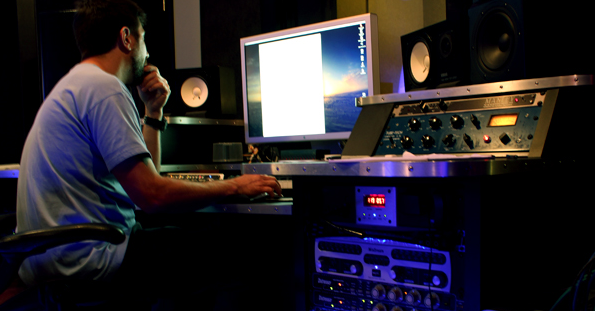When it comes to choosing a career, I have always felt that t is best to select a career path that really plays to both your strengths and your characteristics. One character trait which is often overlooked when it comes to selecting a career, are those with a creative bend. Creativity is often dismissed as not being something which you can base a career on but I wholeheartedly disagree with this.

One career choice which falls within the niche of creativity is that of a music or audio engineer, a great career choice which is incredibly rewarding. Let’s take a look at what this profession is all about, and what skills you will need to succeed.
What An Audio Engineer Does
Audio engineers work in a wide range of industries and deal with the technical aspects of sound when audio is being created, recorded, mixed or reproduced. An audio engineer will usually act as the assistant to producers and musicians, to achieve the kind of sound which they are looking for. Audio engineers will usually be based within a studio and they deal not only with musicians and song creation but also with voice-overs and gaming studios.
How to Become an Audio Engineer
In order to become an audio engineer, you will first need to show a real talent for music at high school level and study music at a higher level as well. Once you have completed this you can go to audio engineering school where you can further hone your skills. Aside from the educational aspect of this job, it is highly recommended that you spend as much time in studios as possible and that you speak to the professionals there and learn all that you can.
What Skills Do I Need?
There is a wide range of skills which you will need to not only gain a job as an audio engineer, but also to be successful in that job. Let’s take a look then at some of the skills which you will need to be able to complete this kind of job.
– Hearing
You must really have an ear for sound and the inner workings of it. It will be up to you to create high-quality sounds and in order to do this you will need to have a sensitive ear that can hear different levels of quality.
– Pitch, Timing, and Rhythm
Beyond the sound, you must also have a firm grasp of the way in which audio flows and be able to find the space within it to add and alter pitch, rhythm, and timing.
– Patience
Within this field, there is always the possibility that you could put in over 4 or 5 hours of work, for just 10 seconds of sound and you need to be able to show patience throughout this process.
Audio engineers are paid relatively well and they have a very rewarding job which sees them take on projects that they can see through to completion, a great job for the creative type.